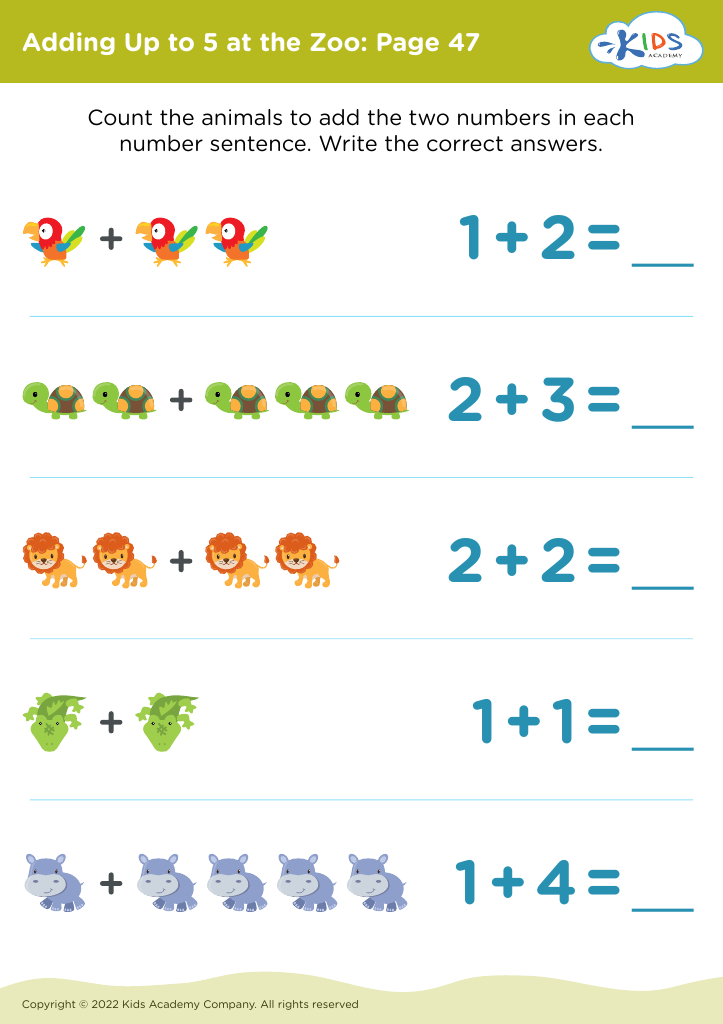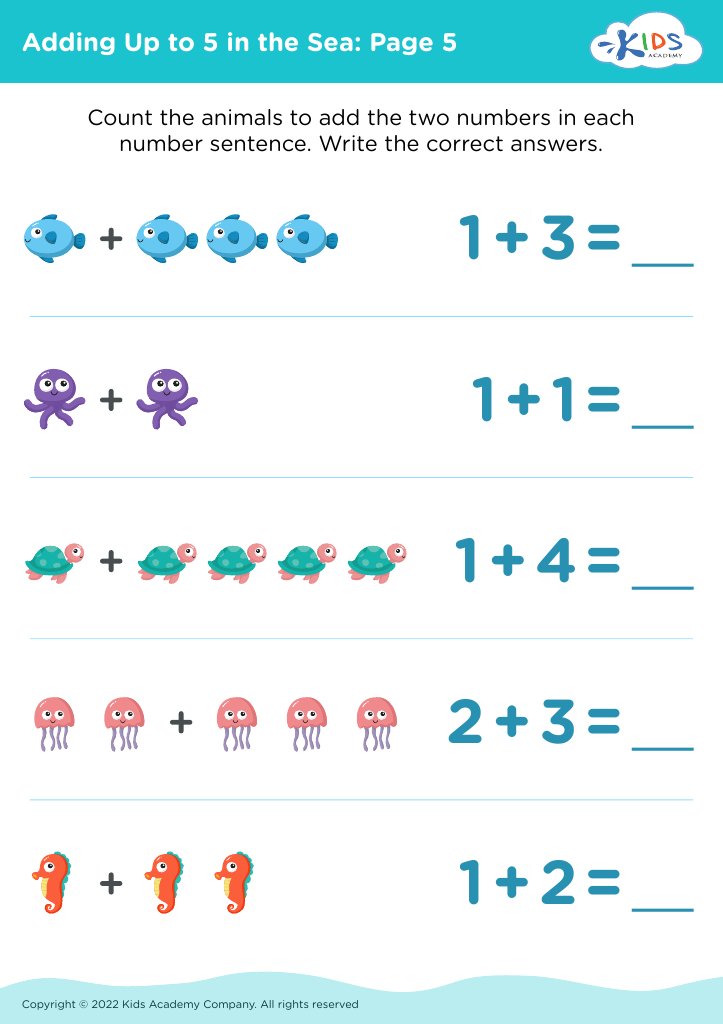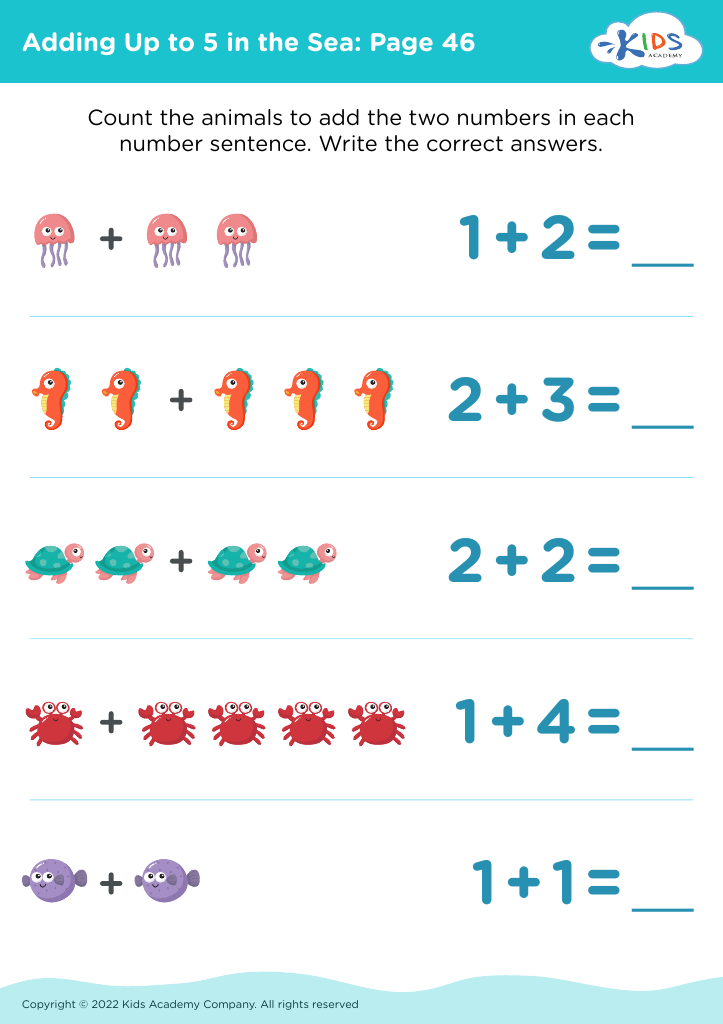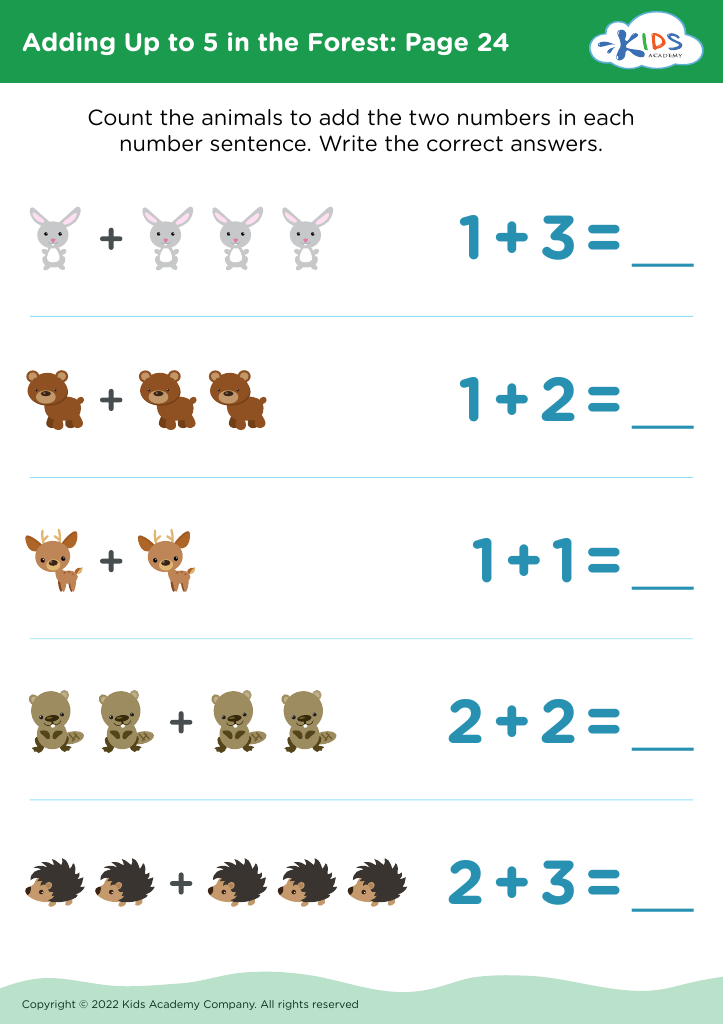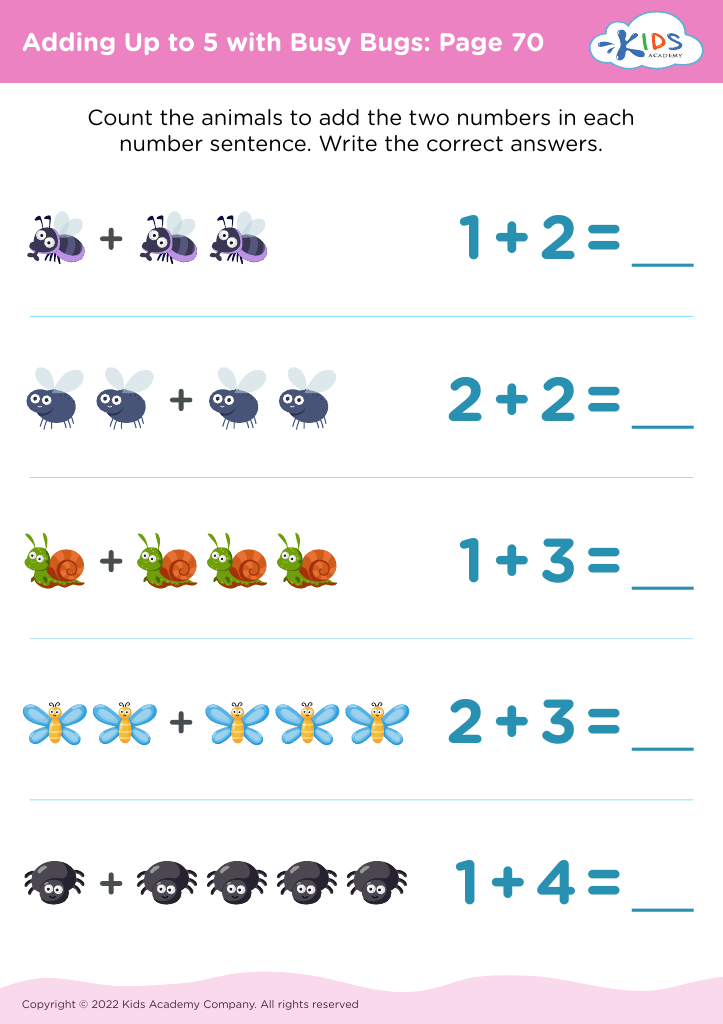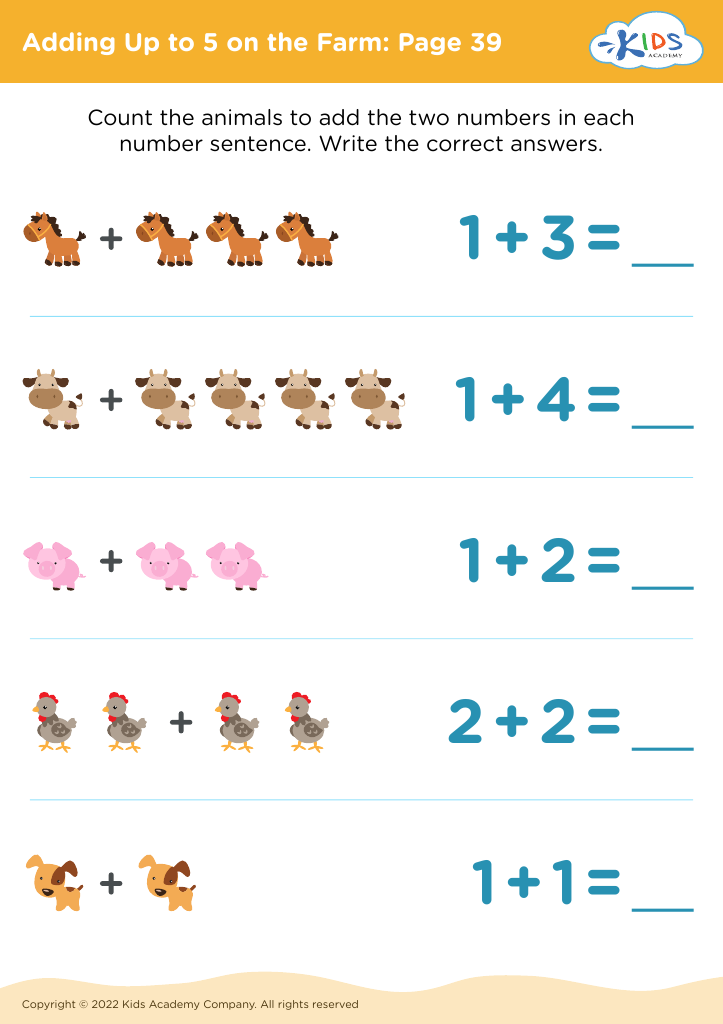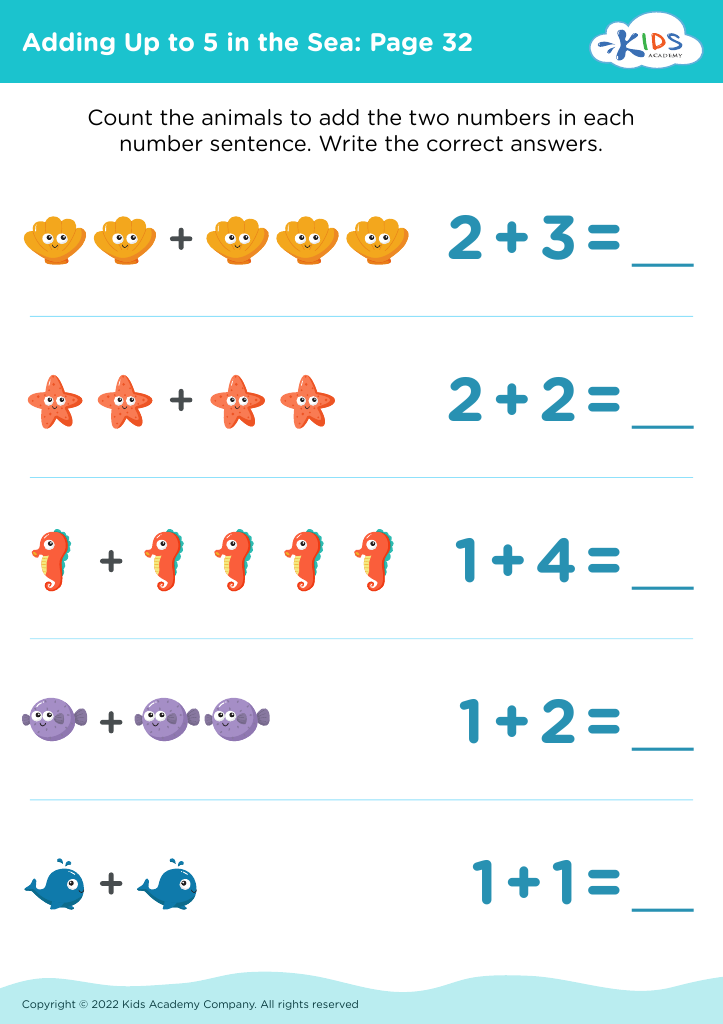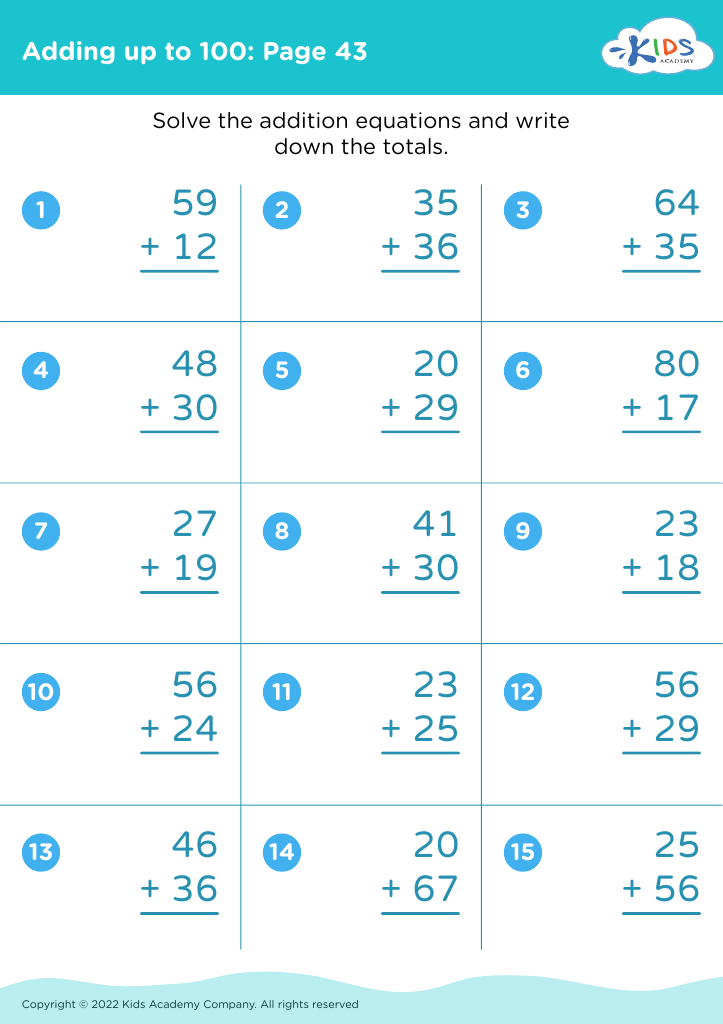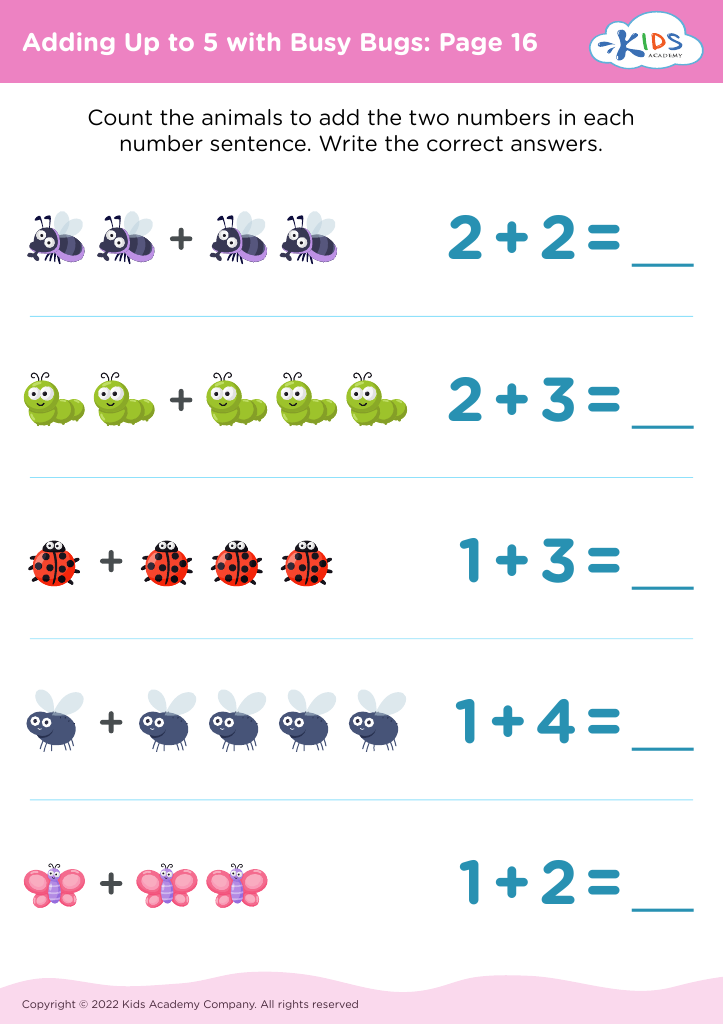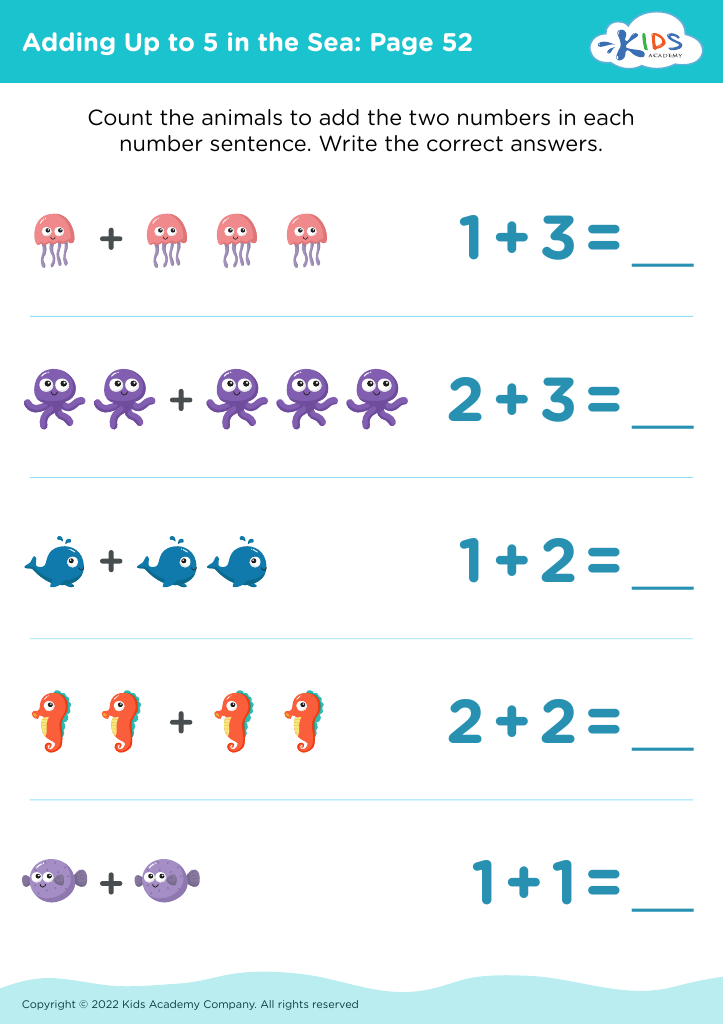Fine motor skills (writing numbers) Addition & Subtraction Worksheets for Ages 4-7
17 filtered results
-
From - To
Enhance your child's fine motor skills with our engaging Addition and Subtraction Worksheets designed specifically for ages 4-7! These printable resources focus on writing numbers, helping young learners develop crucial handwriting abilities alongside foundational math concepts. Each worksheet provides a fun and interactive way for kids to practice addition and subtraction while improving their pencil grip, coordination, and control. By combining essential math exercises with fine motor skills practice, your child will build confidence in both writing and problem-solving. Perfect for at-home practice or classroom activities, these worksheets are a valuable tool to support your child's educational journey. Get started today!
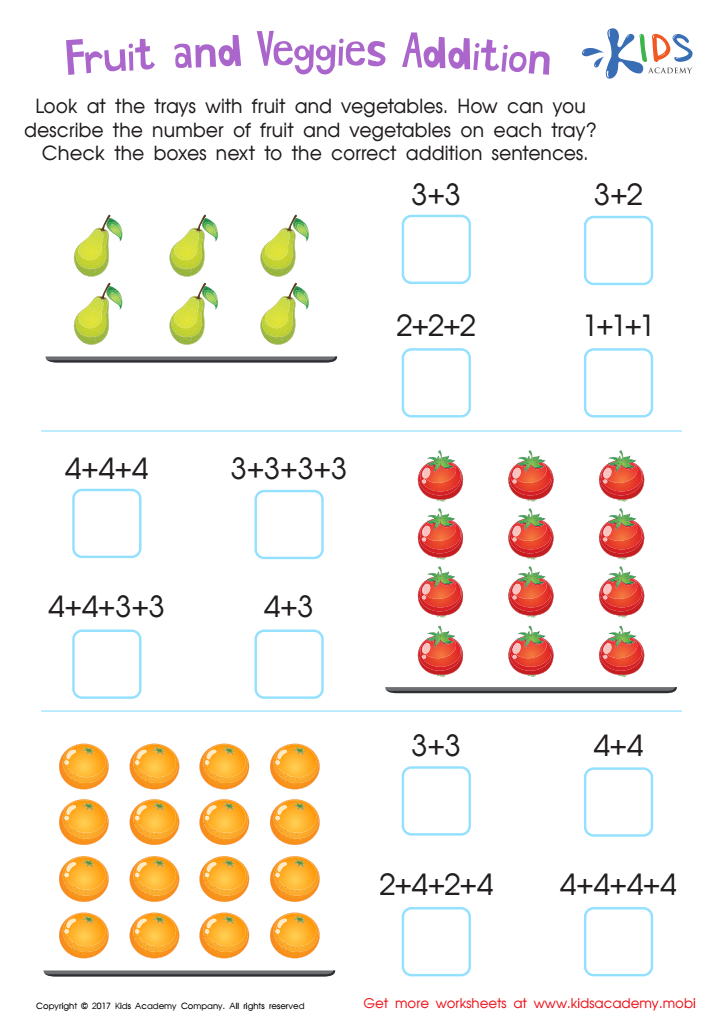

Fruit and Veggies Worksheet
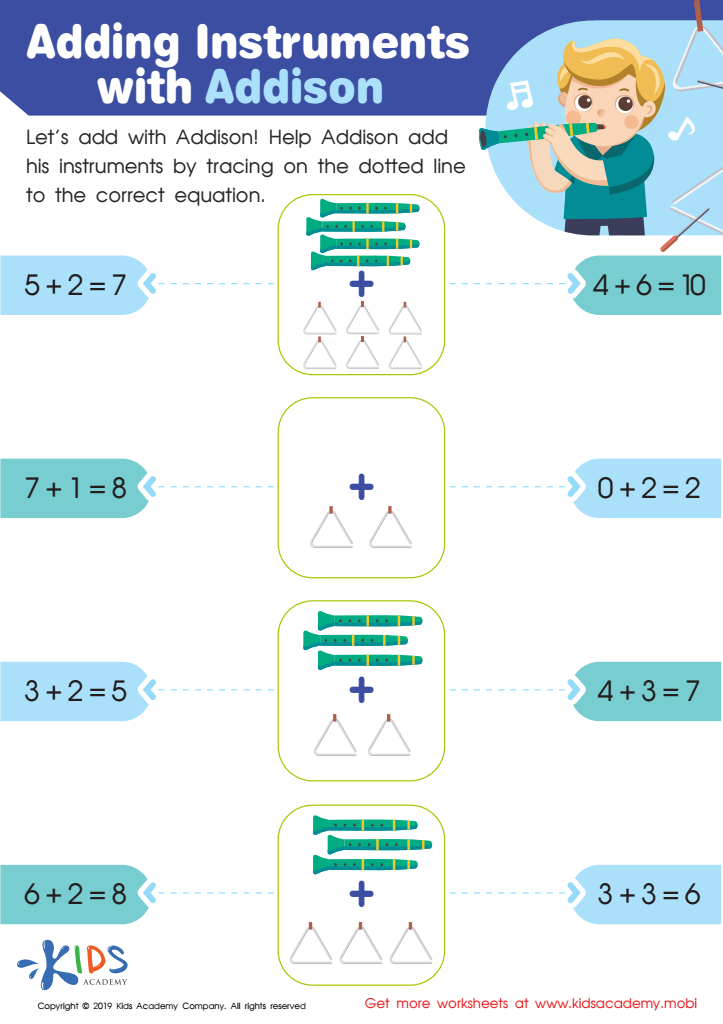

Adding Instruments with Addison Worksheet
Fine motor skills, including writing numbers, are crucial for children aged 4-7 as they serve as the foundation for many essential tasks. Early mastery of these skills enables children to gain confidence in their ability to communicate thoughts through writing. When children learn to write numbers correctly, they are more likely to engage actively in mathematical concepts such as addition and subtraction. This process develops their problem-solving abilities, encourages logical thinking, and lays the groundwork for future academic success.
Moreover, fine motor skills are linked to broader cognitive development. As children grasp writing tools, they enhance their hand-eye coordination and dexterity, which are vital for everyday activities, from tying shoelaces to using scissors. Teachers and parents should provide various engaging activities, such as coloring, tracing numbers, and practicing counting with manipulatives, to foster these skills in playful ways.
By emphasizing the importance of fine motor skills in early math education, educators and parents help build children's confidence and competence. In turn, these early experiences create a positive attitude towards learning, establishing a strong lifelong foundation in both mathematics and writing that will benefit children as they progress through their educational journey.
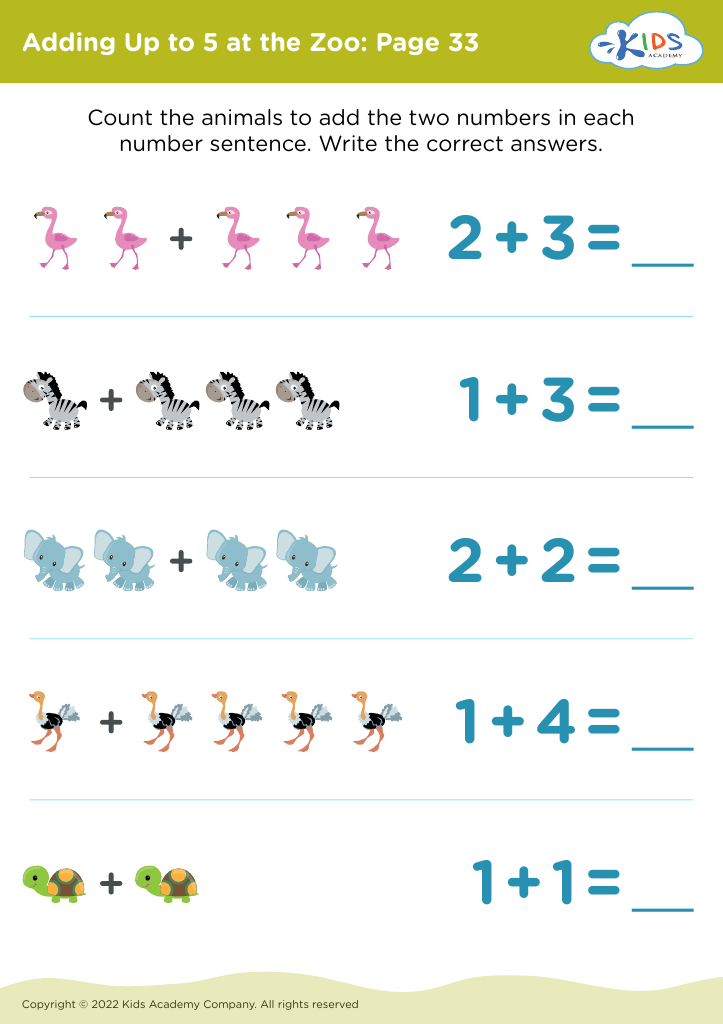

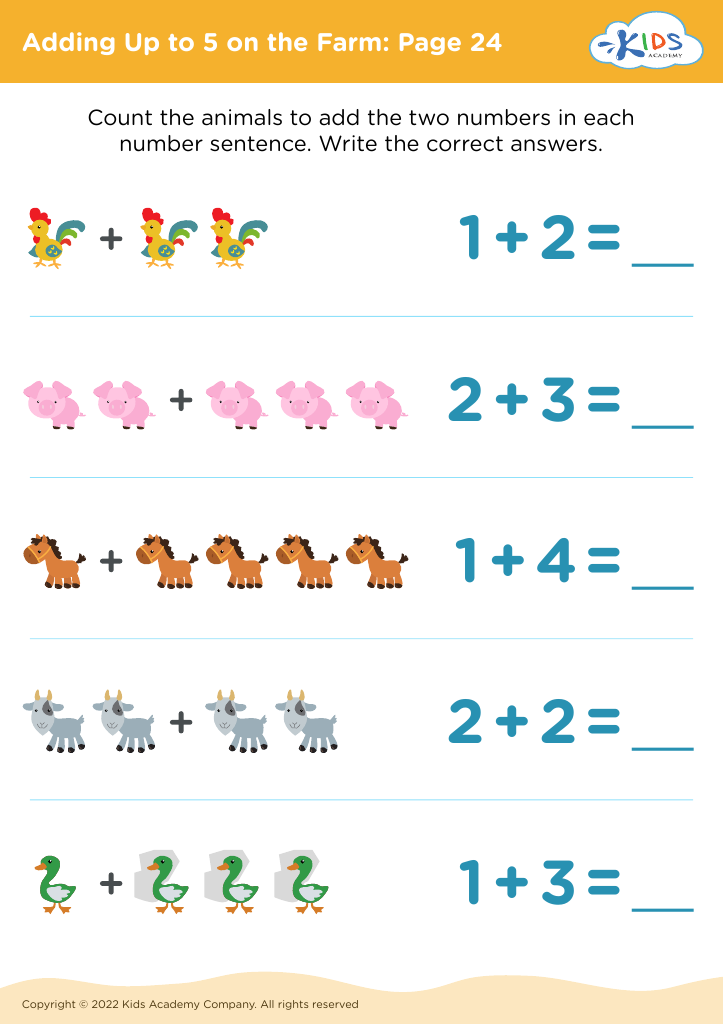
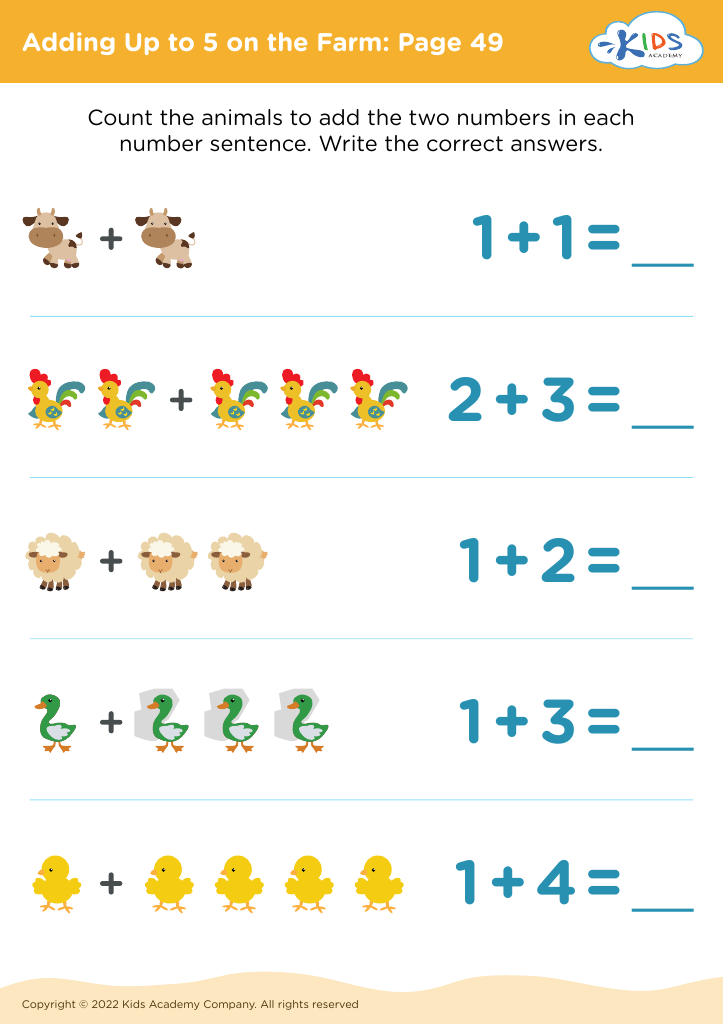
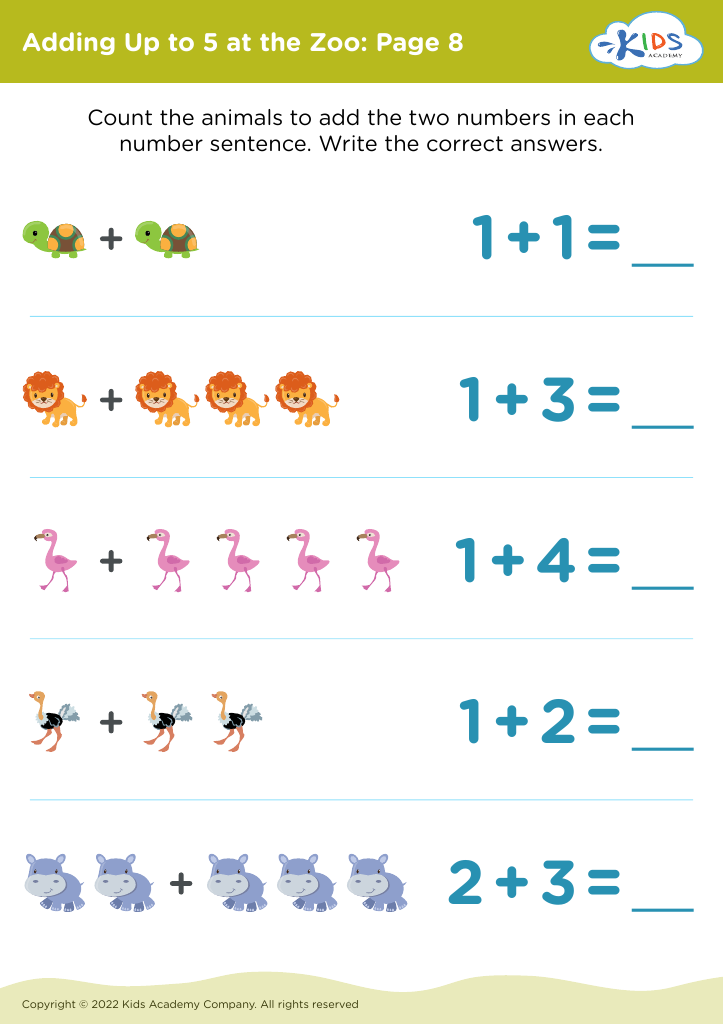
 Assign to My Students
Assign to My Students

